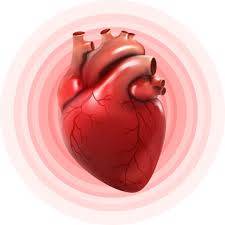Certainly, let's explore heart failure, including its causes, signs, effects, and solutions.
**Causes of Heart Failure:**
1. Coronary artery disease
2. High blood pressure (hypertension)
3. Heart attack (myocardial infarction)
4. Cardiomyopathy
5. Heart valve disease
6. Arrhythmias
7. Diabetes
8. Obesity
9. Chronic kidney disease
10. Pulmonary hypertension
11. Congenital heart defects
12. Viral infections affecting the heart
13. Alcohol abuse
14. Smoking
15. Thyroid disorders
16. Anemia
17. Certain medications (e.g., chemotherapy drugs)
18. Sleep apnea
19. Excessive salt intake
20. Family history of heart failure
**Signs and Symptoms of Heart Failure:**
1. Shortness of breath (dyspnea), especially during physical activity or when lying flat
2. Fatigue and weakness
3. Swelling in the legs, ankles, and feet (edema)
4. Rapid or irregular heartbeat
5. Persistent cough with white or pink blood-tinged phlegm
6. Wheezing or chest tightness
7. Abdominal swelling or discomfort
8. Reduced ability to exercise
9. Sudden weight gain due to fluid retention
10. Loss of appetite and nausea
11. Increased need to urinate at night
12. Difficulty concentrating or confusion
13. Dizziness or fainting
14. Elevated neck veins
15. Bluish skin or lips (cyanosis)
16. Weak pulse
17. Dry, hacking cough
18. Enlarged liver
19. Reduced alertness and productivity
20. Depression and anxiety
**Effects of Heart Failure:**
1. Reduced blood flow to the body's organs and tissues
2. Shortness of breath and decreased exercise tolerance
3. Swelling in the extremities and abdomen
4. Accumulation of fluid in the lungs (pulmonary edema)
5. Kidney dysfunction
6. Fatigue and weakness
7. Irregular heart rhythms (arrhythmias)
8. Reduced quality of life
9. Hospitalizations and medical costs
10. Mental health issues (anxiety, depression)
11. Decreased sexual function
12. Increased risk of stroke
13. Blood clots
14. Decreased liver function
15. Decreased appetite and weight loss
16. Gastrointestinal problems
17. Muscle wasting
18. Increased risk of infection
19. Cardiac cachexia (severe muscle and weight loss)
20. High risk of death if not managed effectively
**Solutions and Management of Heart Failure:**
1. Medications (e.g., ACE inhibitors, beta-blockers, diuretics)
2. Lifestyle changes (e.g., low-sodium diet, weight management)
3. Exercise and physical activity as advised by a healthcare provider
4. Cardiac rehabilitation
5. Managing underlying causes (e.g., controlling blood pressure and diabetes)
6. Heart-healthy diet (low in saturated fats, cholesterol, and salt)
7. Smoking cessation
8. Limiting alcohol intake
9. Reducing stress
10. Continuous monitoring and follow-up with healthcare professionals
11. Implantable devices (e.g., pacemakers, defibrillators)
12. Heart valve repair or replacement surgery
13. Coronary artery bypass surgery
14. Heart transplant (in severe cases)
15. Fluid restriction
16. Oxygen therapy
17. Vaccinations (e.g., flu and pneumonia vaccines)
18. Emotional and psychological support
19. Support groups and education
20. Palliative care for advanced cases
Heart failure is a chronic condition that requires lifelong management. Individual treatment plans should be developed with a healthcare provider to address the specific needs of each patient.



No comments yet
Be the first to share your thoughts!